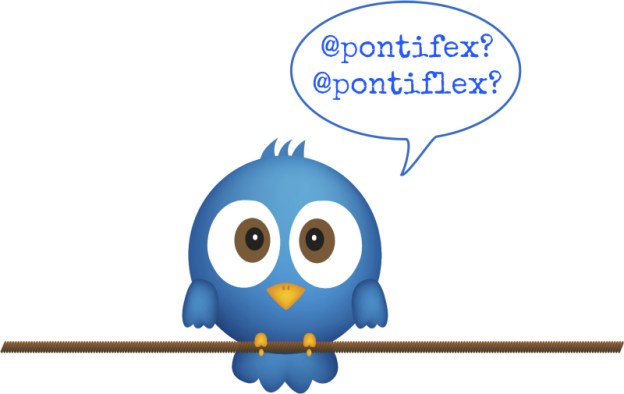 Whether it turns out to be a blessing or a curse is anyone’s guess, but Brooklyn-based mobile advertising firm Pontiflex seems to be dealing with the sudden interest in its Twitter feed with some humor, at least. And why the sudden interest? Its Twitter name, @pontiflex, happens to be one letter different from that of a certain Pope Benedict XVI, who joined Twitter earlier this week with the name @pontifex.
Whether it turns out to be a blessing or a curse is anyone’s guess, but Brooklyn-based mobile advertising firm Pontiflex seems to be dealing with the sudden interest in its Twitter feed with some humor, at least. And why the sudden interest? Its Twitter name, @pontiflex, happens to be one letter different from that of a certain Pope Benedict XVI, who joined Twitter earlier this week with the name @pontifex.
“Suddenly our Twitter started going nuts,” Pontiflex CEO Zephrin Lasker told Crain’s New York Business.
When the Pope popped up on the microblogging site on Monday, his hordes of religious followers wasted no time in becoming his Twitter followers too, with many thousands joining his feed in a matter of hours. A few, however, evidently needed a guiding hand of sorts to lead them in the right direction, having become inadvertent followers of a mobile advertising firm instead of the head of the Catholic church.
“Some people are genuinely kind of confused, and other people get it right away and are making jokes. One letter makes a big difference, I guess,” Lasker said.
At one point the mobile advertising company’s Twitter feed was gathering as many as 75 new followers an hour, prompting Lasker to tweet “We are deeply humbled by the surge of new followers today. But if you’re looking for tweets from the Pope please follow @pontifex” in an effort to point people in the right direction.
While @pontiflex currently has a modest 1350 followers – presumably mistaken Twitter users didn’t hang around too long – the Pope has gathered almost half a million followers in just a couple of days, despite not yet having posted a single tweet.
And in case you happened to be wondering what’s in a letter, the word pontifex comes from Latin and refers to any member of the supreme college of priests in ancient Rome, whereas Pontiflex came from a guy in New York who knew that the Latin word for ‘bridge’ was ‘pont’ and wanted to work it into the name of his company, which he set up four years ago.
Asked about a connection between the Pope and his industry, Lasker mused, “The Catholic Church has billions of followers, and there are billions of mobile phone users. I think that’s the biggest similarity between us.”
[via Ad Age] [Image: PIXXart / Shutterstock]
